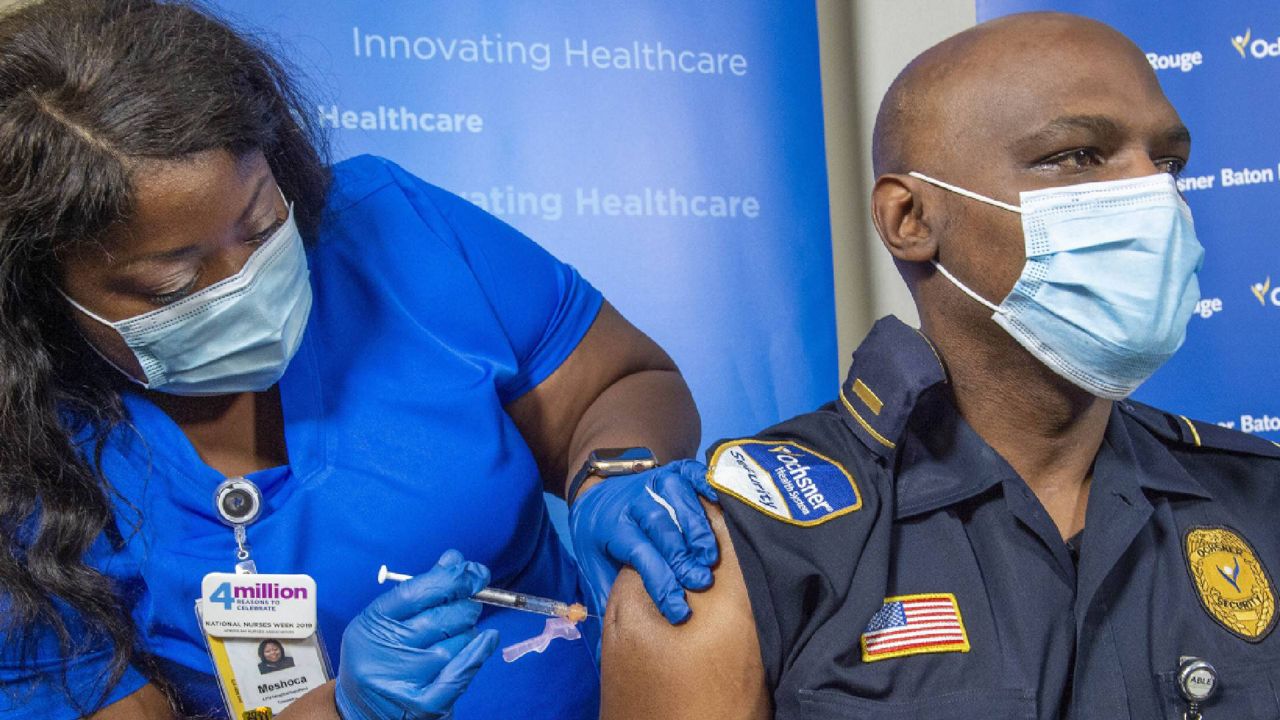The independent panel advising the Centers for Disease Control and Prevention on vaccines will vote Sunday on who to recommend for the next wave of doses.
According to the group’s proposal, the next in line for the vaccine would be other essential workers – such as those in the food industry, police, firefighters, transportation workers and prison staff – followed by Americans over 65 years old and those with underlying health conditions.
Already, states are first working to immunize about 21 million health workers and 3 million long-term care facility residents in this first phase of vaccinations, which the U.S. should have enough doses for by the end of January.
The Advisory Committee on Immunization Practices will now vote on a proposal to prioritize essential workers, older Americans and those with underlying conditions for the next two phases. After a 13-to-1 approval of the first phase, the committee is likely to vote similarly this time.
On Sunday, the committee may address concerns about giving the vaccines to elderly Americans, an issue that was raised during its first vote.
“I have really struggled with this,” Dr. Helen Keipp Talbot of Vanderbilt University, who was the singular “no” vote, said in the Dec. 1 meeting.
“We have traditionally tried a vaccine in a young, healthy population and hoped it worked in our frail, older adults,” she added. “That concerns me on many levels.”
While the Pfizer and Moderna trials included some participants over the age of 65, they haven’t studied their vaccines within a long-term care facility or done a larger trial on older Americans.
The question is whether their immune response to the vaccine will be as robust as it would be in younger people, but experts say there’s no indication it’s risky.
“There’s no a priori reason to think it might be more dangerous in old people,” said Dr. Paula Cannon, a virologist and Associate Professor of Microbiology at the University of Southern California’s medical school.
The roll out of vaccinations in places like nursing homes has been slower because they will happen completely in-house, but U.S. officials expect the first facilities to start administering shots on Monday.
After Sunday’s vote, CDC Director Robert Redfield will review the committee’s recommendations before formally issuing them to state leaders, who will make the final decision on prioritization as part of their individual vaccine plans.
On Saturday, the panel will also vote on whether to recommend Moderna’s vaccine for emergency use.
First, a separate group of Food and Drug Administration advisers will meet Thursday to decide whether to endorse the vaccine, and it could be authorized by the FDA by Friday evening, if it follows a similar trajectory to Pfizer’s last week.
The CDC vote would follow as confirmation, and it allows the agency to publish the vaccine’s use as official guidance.
On Tuesday, the FDA affirmed that Moderna’s vaccine is 94.5% efficacious across various age and racial groups, with no serious side effects or safety issues besides normal indications of the body’s immune response, such as soreness at the site of the shot, fever and fatigue.



